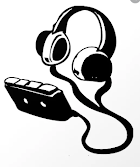My relationship with country music is one of unrequited love.
As a songwriter I'm somewhat obsessed with the genre since I first reacquainted myself with after reading Jimmy Webb's book, and then by chance attending a workshop with him on my first trip to Nashville before moving there. Prior to that I was more into the "California Country" of Poco, Linda Ronstadt and The Eagles, and had written some country-ish songs but I quickly learned about a whole new world. In this world singers didn't write their own songs; other people did.
It was an interesting time, Garth Brooks still reigned and had released the Chris Gaines album and there were artists like Pam Tillis and Patty Loveless who were experimenting with songs that were outside of traditional country. Looking back, I think it was a renaissance of sorts with a healthy competition to expand the genre.Country music has a formula that almost every song follows. It's evolved and moved away from the traditional sound to something more like '80 pop rock, and more recently even adopted some rap and hip hop, but the verse/chorus/bridge arrangement formula is still pretty much intact. If you listen to the top 10 country songs you'll hear multi-track distorted guitars, an in-your-face kick drum and a shredding solo.
Some complain that country music has become stale and corny. It's all about pickups, beer and girls in cutoffs. This is true to some degree, but depending on your definition of corny, that's just part of the charm. I look back on my first attempts at writing in "the formula", (which will never see the light of day I promise) and I see I was embracing a certain pathos; what I didn't see that there is a discipline to the cliches and triteness, and in that there can be elegance and artistry. One recent example I think shows this is Blake Shelton's latest; "Minimum Wage".
However, success leads to repetition and now most artists, writers, and producers stay with what works, and given the stakes who can blame them? It's admirable how successful many artists have become, helped by a tight playlist and relentless repetition on radio, youtube videos, and constant touring.
 |
| Country Music Concert |
Commercial music is just that...for money. Songwriters in Nashville are engaged in art and commerce. The object is to create music that instantly connects with a listener...a "hit". The psychology of music has found that listeners actually make a song part of themselves and each time one hears it, it's an affirmation of one's identity. While this sounds somewhat clinical the actual experience is pleasurable. It's akin to what we feel when we see art we want to possess, but music has it's own place in our psyches.
As a songwriter it's been challenging to write in the country formula. For me it's been like throwing darts with one eye closed. I can hit the board but getting a bullseye...? It's a bit maddening, because I continually hear songs that are well crafted, often with a certain engaging simplicity. But it's not a simple thing, and I'm compelled to emulate it. At the same time the tracks have great production and some inspired playing, so I also listen as a producer and take note of the drum sounds and mixing techniques.
I have a dozen or so songs that were written with the intent to follow the commercial country format. I don't perform them because they aren't personal, or they just don't feel authentic to me as an artist, but I do think they are competitive and it would be gratifying, not to mention lucrative, to have them covered by a well known artist, but the reality of the market makes that unlikely. There is a "Catch 22" irony to getting noticed which simply put is that one has to have success already, somewhat like the adage, "if you want to make a million dollars in the music business, start with two million."
The challenge for me is to come up with the undeniable "hit", in a genre that is constantly a moving target for what is timely and relevant. I'll keep at it and maybe someday my crush on country will be returned.












